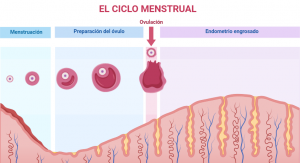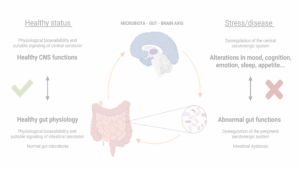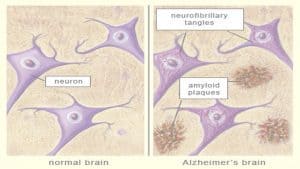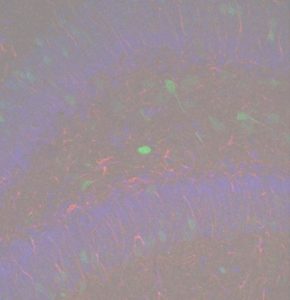Yes, the period. Or the menstruation, or “that time of the month”. Personally, I like to say “the period”, despite being an uncomfortable word for some people. Whichever term you prefer to use, it is true that, once you have it (or your partner has it), you might sadly or relieved think (these emotions vary depending on your future plans) that there is no pregnancy. Nevertheless, the most important message is that the menstrual cycle is perfectly working. Whether you are a male or a female, however, you may be surprised that the period is not as simple as we have been led to think.
WHAT IS THE PERIOD?
Broadly speaking, during each menstrual cycle (which usually lasts around 28 days on average), a woman’s body gets itself ready to deal with a possible pregnancy. During the cycle, the uterine wall – what is known as endometrium – gets thicker and a layer of a very soft tissue, which is perfect to host the development of an embryo, is formed. If no fertilization takes place, that is, if the egg released during the cycle does not fuse with any sperm cell, and thus there is no pregnancy; this fluffy layer loses its function and is detached from the wall, which results in discharge of the endometrial tissue and a small amount of blood. This blood is the period [1].

The thickness of the endometrium changes during the menstrual cycle, process coordinated with ovulation.
Therefore, during a woman’s reproductive life, her uterus gets ready to host a baby every single month. Does this guarantee that the woman is fertile? It might surprise most of the readers, but the answer is a clear “no”. Fertility depends on many factors: how “cozy” the endometrium is (what in assisted reproduction is known as endometrial receptivity), the actual release of the eggs during the cycle and their quality, the possible obstructions the egg might find on its way to the endometrium; among several others [2].
DO PERIOD AND OVULATION ALWAYS COME TOGETHER?
Now, another question arises: is it possible that menstruation occurs if no egg is released? Again, the answer can be a little bit disconcerting for some: yes, there could be menstruation without ovulation. In fact, this is what could happen if the woman is taking the combined pill. This contraceptive pill contains a fixed amount of the hormones that are involved in the menstrual cycle: estrogen and progesterone. Since the levels of these hormones is constant throughout the whole cycle (one pill a day), the ovaries do not receive any signal about having to release the egg. The natural signal is “drowned” by the hormones that have been externally given. To put this in context, imagine you are at a disco trying to hear your alarm clock ringing: mission impossible. That is literally what happens to the ovaries. The endometrium, however, only needs those hormones to be present to get prepared. In other words, it does not care if the music playing is Maluma or Good Morning Good Morning by the Beatles. When the music stops – that is, when the hormonal levels drop as soon as the woman stops taking the pill or she starts taking placebo pills, which do not have hormones –, the endometrium detaches from the uterine wall, and the period starts. Therefore, we can prevent the release of eggs but have the menstruation, regardless [3].
Nevertheless, could the opposite happen? That is, could ovulation occur without menstruation? The truth is that, if a woman does not have the period, it is unlikely that she is producing the hormones required to release the egg, which reduces the possibilities of having ovulated.
And the last question: is it possible to have the period during pregnancy? The answer is yes. Well… not really. Let me explain this. When fertilization takes place and the embryo reaches the endometrium, it attaches itself there as if it was a seed growing in this endometrial tissue. This, however, could be followed by some bleeding, which can be confused with the period – although it would be very short and minor. Therefore, the final answer is no, there is no period during pregnancy, although some bleeding could occur [1].
AND WHY IS IT SO IMPORTANT TO TALK ABOUT THE PERIOD?
The period might seem a simple process, but it is not. Every person’s body is unique, and so the menstrual cycle. Even though understanding this cycle is certainly troublesome, knowing how our body works is very important. For instance, the research about the hormonal changes that take place during the menstrual cycle could allow in the future to anticipate or even alleviate the well-known premenstrual syndrome or the symptoms of menopause. This would be a great advance in the field of women’s health. In addition, thanks to these studies, methods or treatments to increase fertility are currently being developed and improved.
The period has been an outstanding taboo for a long time, which is probably why most of us do not know very well what it really means. It is not studied well enough in school, and it is not given as much importance as other health issues, such as teeth health. Ladies and gentlemen, I would like to encourage you to learn a little more about the period, talk about it and better understand it; because this is something that half of the population will have to go through at least once a month during most of their lives.
* * *
By Ana Isabel Rodriguez Rodriguez (@Rguezana13), PhD student at the University of Edinburgh.
More information:






